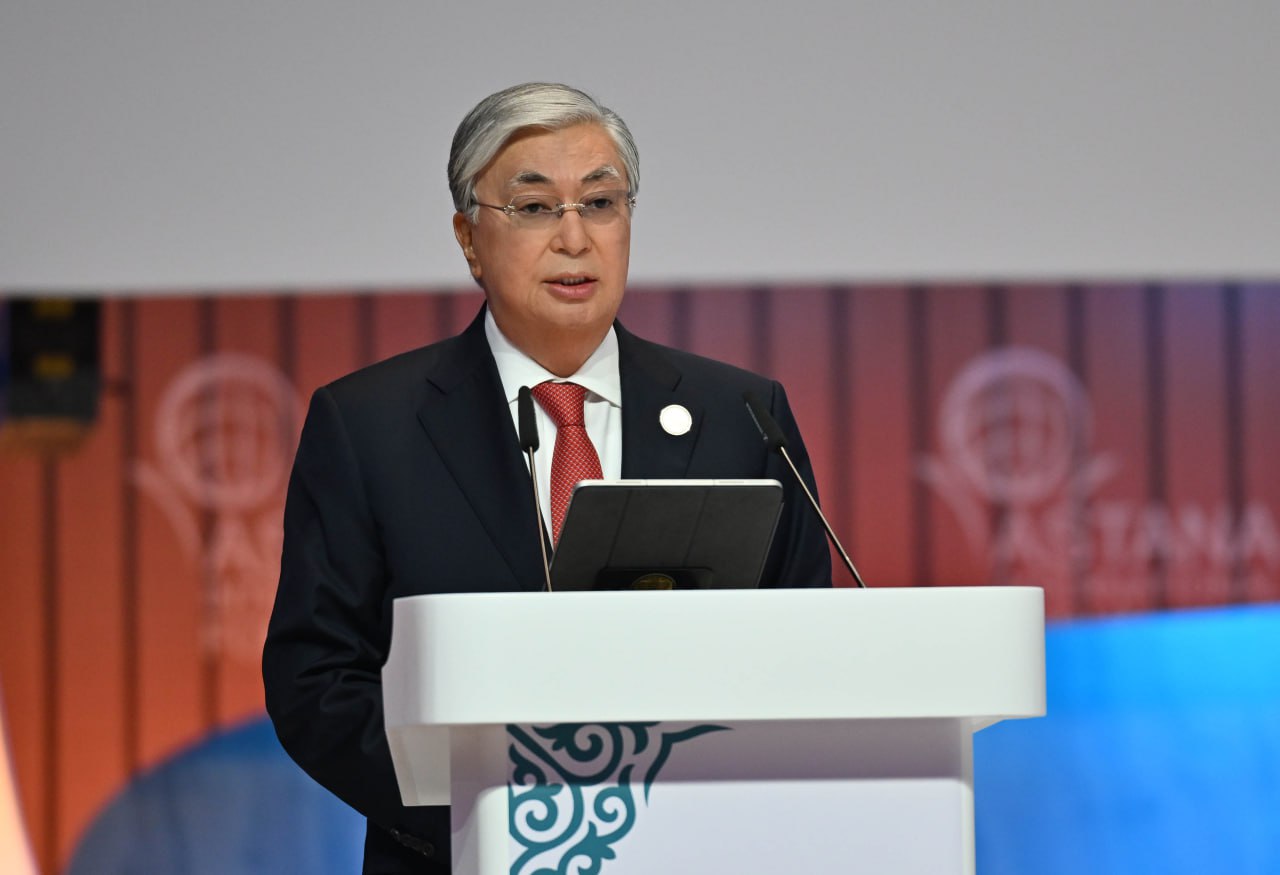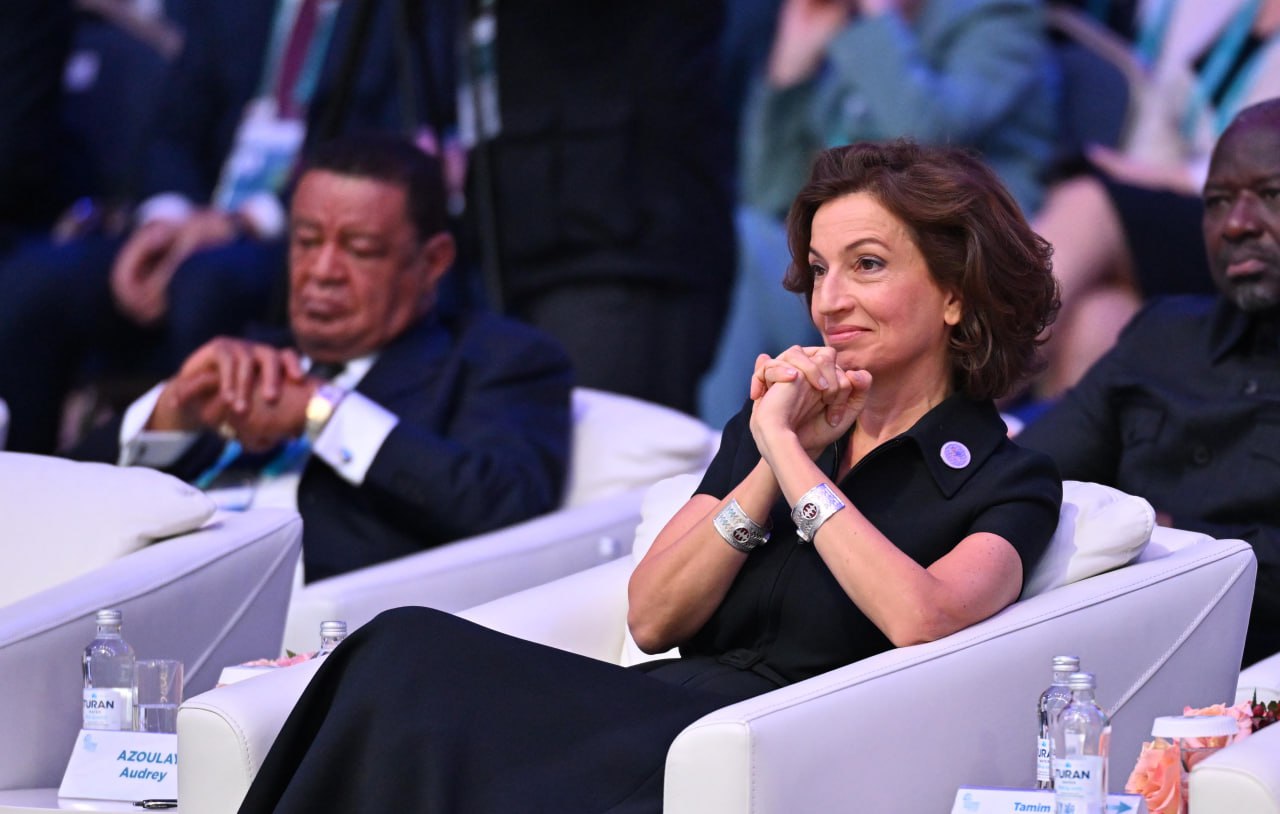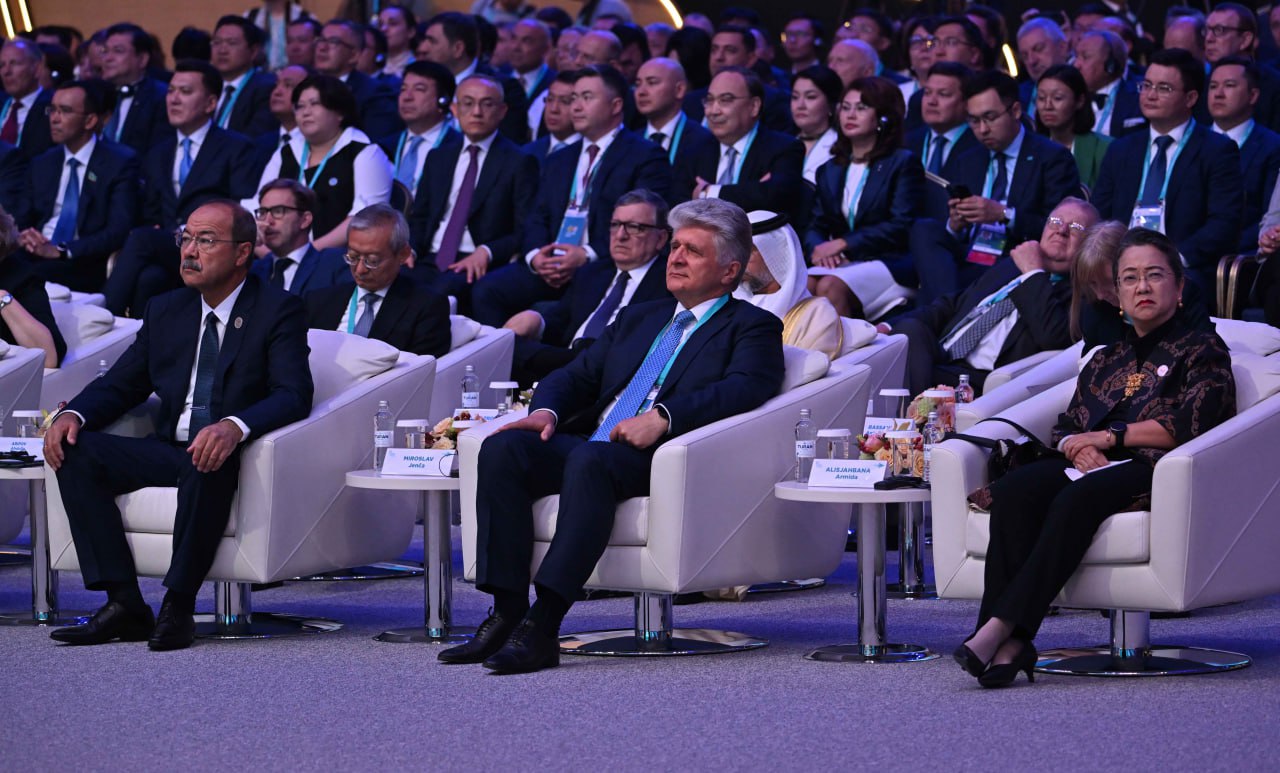ASTANA – Kazakh President Kassym-Jomart Tokayev outlined key global initiatives to address humanity’s shared challenges, focusing on the significance of the Astana International Forum (AIF) at a June 8 opening ceremony and plenary session, reported the Akorda press service.

President Kassym-Jomart Tokayev delivers speech at the opening ceremony of the Astana International Forum. Photo credit: Akorda.
Climate awareness and Afghanistan crisis
Tokayev proposed to the global community to hold a Regional Climate Summit in Kazakhstan in 2026 under the auspices of the United Nations (UN) and other international organizations to facilitate dialogue and find adequate solutions to climate change.
Referring to the critically low water level in the two great rivers of the Central Asian region – the Syr Darya and the Amu Darya – which could decrease by nearly 15% by 2050, Tokayev called for “more resources to support the International Fund for Saving the Aral Sea to prevent an ecological catastrophe in the region.”

Director General of the United Nations Educational, Scientific and Cultural Organization (UNESCO) Audrey Azoulay. Photo credit: Akorda.
“Kazakhstan could offer huge green economy opportunities and become a center for renewable energy. However, time is not on our side. We need resources and partnerships to decarbonize and build a green economy at the speed we need,” he said.
Tokayev also focused on the humanitarian crisis in Afghanistan and the acute need to provide comprehensive assistance to the Afghan people under the auspices of the UN. In this context, Tokayev reiterated his initiatives to open the UN Regional Center for Sustainable Development Goals (SDGs) for Central Asia and Afghanistan in Almaty.
Geopolitical tensions and AIF mission
As an effective dialogue platform, the AIF can help the international community “to candidly review the global situation, identify the leading challenges and crises that confront the world, tackle those challenges through dialogue in the spirit of cooperation, renew and rebuild a common culture of multilateralism, and amplify voices for peace, progress, and solidarity.”

Delegates from over 70 countries take part in the Astana International Forum. Photo credit: Akorda.
“This forum explicitly promotes greater engagement at a time when we need it more than ever – a period of unprecedented geopolitical tension. For it to survive, the global system must work for everyone, bringing peace and prosperity to the many, rather than the few,” Tokayev emphasized.
He pointed out that the world is witnessing the erosion of the foundation of the world order that has been built since the creation of the UN, which remains the only universal global organization that unites everyone together.
“At the same time, we will not succeed in tackling these challenges without a comprehensive reform of the Security Council. The voices of the middle powers in the UN Security Council need to be amplified and heard,” he said.
With geopolitical pressures pushing the world apart, the international community faces a clear, strong imperative to come together, engage, collaborate, and align with one another, Tokayev said.
At such a time, the AIF presents another opportunity to facilitate this, he said. “Only by meeting together, taking counsel together, and being mutually honest about our problems, concerns and hopes, can the international community address these issues,” Tokayev highlighted, calling it the only way humanity can shape a shared future and return to the gradual building of a more stable, equitable, and prosperous world for all.
Despite geopolitical upheavals, Kazakhstan continues to serve as an economic engine in and for Central Asia with significant foreign investment inflows, providing favorable conditions for business.
“The Middle Corridor (Trans-Caspian International Transport Route – linking China to the European Union) is opening up new possibilities for trade and investment. The route will cut almost in half the time it takes to transport goods via the Indian Ocean,” Tokayev said.
The President emphasized the country’s key role in the Belt and Road Initiative, which promotes economic development and intraregional connectivity, calling Kazakhstan “a truly global and, most importantly, reliable trade and economic partner that works hard to maintain friendly relations with its global and regional partners.”
“We aim to foster physical connection among the nations and people present here today, as well as nurture bonds between our communities as partners and friends,” Tokayev noted.
Kazakhstan’s reforms
Recalling a transformative year for Kazakhstan, Tokayev mentioned the country’s reforms to limit presidential powers, amend the Constitution, reset political and economic systems, and tackle corruption.
“Contemporary Kazakhstan is different from what it was, say, two years ago. Our path to overhaul the existing system is far from over. We understand that political reforms and investments in human capital can save us from the middle-income trap and make our economy more resilient,” he noted.
Tokayev concluded that the planet’s climate emergency “is the clearest example of our interdependence and shared destiny.”
“Whether we like it or not, we are bound together. Given that reality, those who figure out how to work together will succeed, and those who do not will fail. Multilateralism, centered on the UN’s principles and values, is not merely the most effective way to address this challenge – it is the only path. These are the principles, the intellectual roots of the AIF, a space for dialogue to tackle common challenges and move towards cooperation, development, and progress,” he said.

